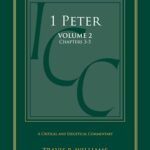Whatever Happened to Literal Hermeneutics? (Part 4a)
We come now to the heart of this series, viz., a discovery of the “received laws of language” that we as humans unconsciously use every day as we engage in ordinary communication with one another. The material here is not new with me, but rather is a distillation of an article published in 2002 by Rolland McCune, “What Is Literal Interpretation?” that he contributed to a start-up journal published by a missionary with whom he was acquainted, Sola Scriptura, issue #3. It is unfortunate that the study has not been circulated more widely.
The first of the hermeneutical rules he proposes is the Univocal Nature of Language. By univocal is simply meant “one voice.” By saying that the Bible speaks univocally we mean that its statements can have only one signification in any given context. To this I add the following qualifications: (1) while we must concede that many words have wide semantic ranges, we would insist that they bring but one meaning to any single propositional context; further, (2) while we admit that some people occasionally use double entendres or puns to deliberately connote two things at once, we would argue that such figures only “work” when hearers successfully incise the play on words: a communicator who uses puns that his audience doesn’t “get” is a failure. To summarize, no system of language/thought can survive solely or principally on such clever ambiguities. They are incidental exceptions that prove the rule.
As a transcendental rule, this seminal principle of language is axiomatic—it must be assumed true in order to be disproved. To assert otherwise would require words that follow this rule, or else the argument would fall apart into meaninglessness.
Applied to Bible study methods, this principle means that the Bible, since it is written in a “normal” manner with respect to grammar, syntax, genres, figures, etc., and was written for the express purpose of revealing truth, contains no additional, hidden meanings that were “missed” by the original writers/readers using standard grammatical and syntactical hermeneutical methods. A statement made in the OT had precisely the same meaning to its immediate readers that it has to its modern readers. To cite Fee and Stuart, “A text cannot mean what it never meant.” True, later revelation often clarifies or expands what was known by earlier revelation, but it never divulges hidden messages unknown to the original communicators, much less those that resignify the text.
To affirm otherwise, I would argue, is to introduce uncertainty to the whole of Scripture. In Milton Terry’s words, “The moment we admit the principle that portions of Scripture contain an occult or double sense we introduce an element of uncertainty in the sacred volume, and unsettle all scientific interpretation.” Who knows? Perhaps the plain meaning of the precious New Testament promises of eternal life, heaven, and eternal reward will one day yield to some new meaning that rises to replace it! We surely cannot countenance this scenario, and so it follows that we cannot countenance any scenario that does this to any text of Scripture. To use transcendental terms, the Christian system cannot survive the implications of a Scripture that allows for the possibility of evolving, surrogate, or alien meanings anywhere within its leaves.
As such, a literalist resists hermeneutical models specializing in “mystery”—models that boast hidden meanings, whether they be twofold (the Apostolic Fathers), threefold (Origen), fourfold (Cassian), or the more domesticated typological/Christological school popular today. Instead, the literalist does not rest until he discovers an exegetically plausible and “normal” explanation for each difficult text of Scripture, viz., one that preserves the univocal nature of language.



Does what you write here automatically rule out something like the framework interpretation of Genesis 1?
Paul, I was not intending to target the validity of the framework interpretation in this series (I was targeting allegorical and typological hermeneutical models), but yes, I think this is a fair conclusion. The major question here is what the original author meant, as deduced from what he wrote, and also what the original hearers inferred.
From what I’ve studied, I’m not convinced that grammatical analysis yields the “highly structured” form proposed by framework advocates; rather, Moses appears to be using ordinary narrative in Genesis 1 (esp. as reflected in his own commentary on the text in Exod 20:11). For that reason I have come to think that the framework interpretation has been contrived after the fact for reasons other than exegetical.
Could you point me to the best commentary applying these principles to the prophecies in Matthew 1 and 2? Those would be good test cases.
Or could you address them yourself? Maybe by demonstrating why the hermeneutic you propose is superior to the typological/Christological framework.
I’ve really found this series to be helpful and challenging.
Is there any place to access McCune’s article online or purchase a copy of the journal you mentioned?
Andy, the commentary that most closely reflects the model I am suggesting, at least that I have found, is Stanley Toussaint’s Behold the King: A Study of Matthew (Multnomah, 1980). For further discussion, I’d recommend Chuck Dyer’s essay, “The Biblical Meaning of ‘Fulfillment,'” in Issues in Dispensationalism (Moody Press, 1994).
I plan to revisit the three Matthew passages more completely as the series unfolds.
Duane, I have a pre-pub copy that was delivered at our Mid-America Conference on preaching (2000). PM me and I can send you a PDF.
The little journal that published the article in 2002 (in Asia) no longer exists, and I doubt that any copies remain for sale.
Dr. S
Thanks so much for this series. What a refreshing reminder from my classes with Dr. McCune. I continue to benefit greatly from his lectures on this (as well as some of Dr. Kaiser’s works on the subject). I hope that you will be able to share bibliographic information of various published writings which address the topic.
Dr. Snoeberger, I’m wondering how you’d see the principle of univocality applying to John 11:49-52. John tells us that when Caiaphas as high priest spoke he prophesied. But then John seems to gives Caiaphas’ words a different sense than Caiaphas or his hearers in the council would have given them at the time.
Dr. Snoeberger,
Thank you for the series, I have appreciated it so far and am looking forward to where you are going to take it.
I am curious about how you understand the epistemological implications of the assertion of univocal language. If the language in univocal (and I agree it is) and if actual knowledge is communicated by that language (which I think we must assert), does it follow that those things we properly understand in the Scripture constitute a knowledge that is univocal with God’s knowledge of the same propositions?
Or, would you say that God’s revelation is in univocal language but such that it does not communicate knowledge that is univocal (between God and humans)?
Jim,
John 11:49–52 is undoubtedly one of the more thorny texts in this matter. But I think our options remain at least somewhat open:
1. It is exegetically possible, I think, that John is simply pointing out an irony after the fact. Caiaphas said something and it was true, but not exactly what he meant—something of an unintentional double entendre.
2. It is also exegetically possible to see the tension as residing in the realm of significance rather than meaning. IOW, Caiaphas was correctly intending to affirm that a man was going to die for the advantage of the Jewish nation, and while he was not aware of all the implications of his statement, his meaning was entirely true and accurate.
3. It is also exegetically possible that God commandeered Caiaphas’s voice and made him say something other than he intended (cf. Saul among the prophets).
4. It is also exegetically possible that the prophet Caiaphas meant one thing and God meant something entirely different (the standard typological approach to the text).
My preference is option #2. But even if one chooses option #4 (which I am disinclined to do), I don’t see this as a green light to take every OT prophecy and assume that this is a systemic pattern. To me this is to engage in hermeneutical anarchy that turns the whole of OT revelation into an inscrutable code that its readers uniformly misunderstood until the New Testament came along with the key.
Kevin,
That’s a great question, and as a fan of Van Til in his famous controversy with Gordon Clark, I’ve thought about it often. My short answer is that I don’t see a univocal view of language as conflicting with an analogical view of truth. True, God does know all things matter in a manner both quantitatively and qualitatively different from the way that man knows them, but he doesn’t use that fact to play word games when he communicates with his creatures. His revelation is an act of divine condescension in which he necessarily follows his own linguistic rules so as to communicate with us both meaningfully and truly. Otherwise we might well find ourselves worshiping the wholly other God of new orthodoxy—and, predictably, diminishing the Christian Scriptures in the very same way.
And who knows? Perhaps that is where evangelicalism will eventually tumble.
Thank you Dr. Snoeberger,
I have learned a great deal and have a great deal of respect for both Clark and Van Til (though I would side with Clark on this particular issue, for some of the very reasons you give).
My reason for asking the question, however, is much more practical. I am currently taking classes to finish up a degree at another seminary and am astonished at how far the influence of neo-orthodoxy has penetrated into the basic assumptions of many of the students and some of the professors.
We are living through a crisis of language, particularly with regard to the correspondence of language to truth. As people of The Word, these philosophical entanglements have profoundly practical consequences for our ministries. I commend you for discussing them.